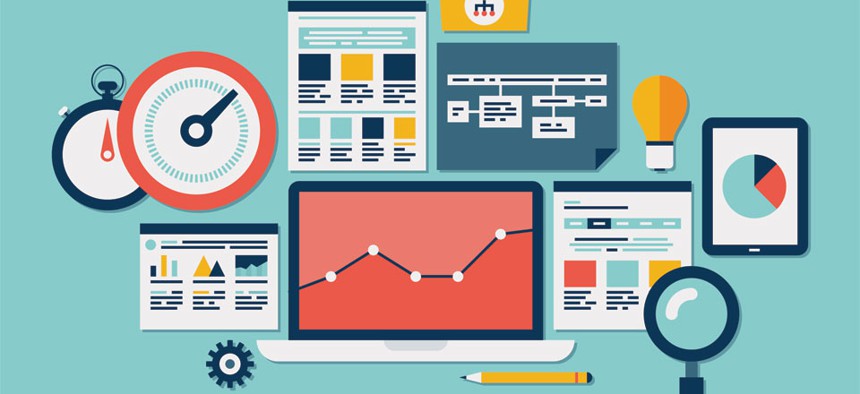Data-Centric Jobs Already Flourish in the Federal Government

bloomua/Shutterstock.com
All told, there are some 1.6 million government workers (including state and local) in positions where data is “central to the job,” according to a recent Commerce Department report.
After the Obama administration named DJ Patil the first govermentwide chief data scientist, the former LinkedIn and PayPal data-cruncher spent his first few weeks on the job rolling out the welcome mat for more data geeks to join government.
But while dedicated data scientists may still be in short supply in the federal government -- the term has only been in popular use for a handful of years -- many government employees are no strangers to data.
All told, there are some 1.6 million government workers (including state and local) in positions where data is “central to the job,” according to a recent report from the Commerce Department’s Economic and Statistics Administration. That’s about 7.4 percent of all government employees.
The report’s authors categorized data jobs based on a database of job descriptions maintained by the Labor Department. Data-centric jobs involve:
Analyzing data or information: identifying the underlying principles, reasons or facts of information by breaking down information or data into separate parts.
Processing information: compiling, coding, categorizing, calculating, tabulating, auditing or verifying information or data.
Interacting with computers: using computers and computer systems (including hardware and software) to program, write software, set up functions, enter data or process information.”
"Among the five areas with the highest concentrations of “data intensive industries”: Washington, D.C., Virginia and Maryland, according to the report. That suggests “jobs that support the federal government may be playing a role in this specialization in data industries,” the report stated.
None of that is news to Patil, the new government data chief.
Federal agencies are “more data-driven than most companies are right now,” he said last month at a West Coast tech conference. “And that's a bold statement. But from everything [I've seen] in the small period of time that I've been there, it’s absolutely true."
Across the broader labor force, there are some 10.3 million data-centric jobs. They span the gamut from astronomers (the most data-intensive occupation, according to the bureau’s criteria) to statisticians, financial analysts, software developers and epidemiologists.
Still, the authors of the report acknowledged some fuzziness about the term.
“Measuring the importance of data and its effect on employment and the economy is not straightforward,” the report stated. “There is no consensus as to what constitutes a ‘data job’ or a ‘data industry.’”
The term "data" itself is pretty amorphous, the report stated, adding, “There is even debate about whether the term itself is singular or plural.”
(Image via Bloomua/ Shutterstock.com)





